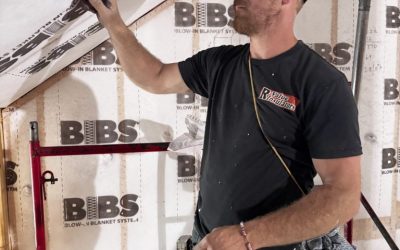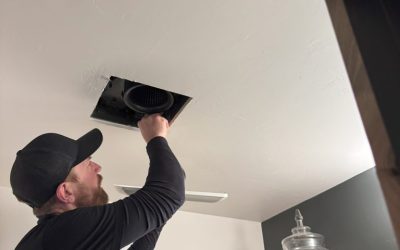A critical area for home energy efficiency is the attic. Whether you’re a builder, tradesman, or homeowner, understanding the ins and outs of attic insulation can significantly impact a house’s energy efficiency and overall comfort level!
We’re going to cover the best types of insulation for different types of attics, the value of attic insulation, and tips for those considering the DIY route.
What Type of Insulation is Best for Attics?
Choosing the right insulation for your attic depends largely on the attic’s structure.
- Open, flat attics: Loose-fill cellulose insulation is the best choice, with an ideal R-value of up to R-60. This is an eco-friendly option that’s both effective in thermal resistance and sound dampening.
- Closed cavity, unvented attics: Blow-In-Blanket System (BIBS) is your go-to solution. BIBS can achieve an R-60 level, ensuring a high resistance to thermal transfer and a significant reduction in energy consumption.
Take a look at this blog for information about R-Factors.
Is Adding Insulation to an Attic Worth It?
The short answer is yes, absolutely!
However, it’s crucial to first conduct thorough air sealing before insulation. Unsealed leaks can undermine the effectiveness of your new insulation, because they allow warm or cool air to escape. For those unsure about where to start, scheduling a Home Performance Evaluation through Focus on Energy can pinpoint areas needing attention, ensuring your insulation update truly works to your advantage.
Watch this video from Focus on Energy to learn more about getting an energy assessment. The RVI team can also help you out!
How Do I Insulate My Attic Myself?
If you are a brave DIYer ready to tackle attic insulation, the process starts well before you rent an insulation machine. First, ensure all air sealing is complete to maximize your insulation’s effectiveness. Check and replace bath fans if necessary, and ensure proper venting and blocking are in place in the eaves to maintain good airflow.
Once these steps are addressed, you can move forward with blowing in your chosen insulation, keeping in mind that achieving an even distribution is key to avoiding cold spots.
What is the R-value for an Attic? Is R60 Worth It?
While most attics traditionally aim for an R-49 insulation level, the trend towards R-60 is gaining traction for good reason. An R-60 insulation level offers superior thermal resistance, meaning less heat escapes in the winter and less cool air in the summer. This upgrade can lead to significant energy savings over time, making the investment well worth it for those looking to cut costs and increase comfort.
Remember, RVI stands by to equip you with the knowledge and expertise needed to make informed decisions. By focusing on these key areas, you can transform your attic!



